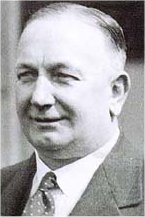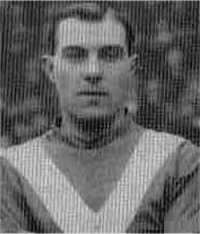SOME OF THE STORIES FROM THE HISTORY OF FOOTBALL.. . . .
LEEDS
CITY
expelled from the Football League in 1919/20
It may not come as a surprise to any fan to
learn that clubs facing financial problems are not exclusive to the modern
game. What might come as a surprise, though, given in the modern world
money seems no object as far as players' wages are concerned, is that for
most of the existence of the Football League there have been
strictly-enforced rules concerning maximum wages payable to players. Leeds
City FC learnt that you broke those rules at your peril.
Leeds City were founded in 1904. They spent one unspectacular season in
the West Yorkshire League before applying for membership of the Football
League. As representatives of the largest English city without a League
club - and from a stronghold of the rugby code of football - they were
welcomed into the League. They topped the vote for League places for the
1905/06 season, finishing 5 votes ahead of Chelsea who also made their
debut in the Football League in 1905/06. That first season saw them finish sixth in the Second
Division of the Football League but then for a number of years their
fortunes declined on the playing side. Off the field Leeds had a constant
battle to keep afloat financially. On one occasion their bank came close
to calling in their overdraft, which would probably have put them out of
business. The sum concerned - £7000 - not even a large Barclaycard limit
nowadays but then a massive sum. In 1912, when they had to seek
re-election to the League, it was stated that their liabilities were
£15,782 while assets stood at just £7,084.
 It was at this point that Leeds City appointed as their new
secretary-manager, one Herbert Chapman. Having successfully served his
managerial apprenticeship at Northampton Town the ambitious Chapman made
the move to Leeds and made an immediate impact with the club finishing
sixth in his first season and narrowly missing out on promotion in the
second. However his transfer dealings did see Leeds City fall foul of the
Football League with three players earning more than the maximum permitted
wage of £4 per week. The club was fined £125 plus costs and the players
had to refund the excess payments. It was at this point that Leeds City appointed as their new
secretary-manager, one Herbert Chapman. Having successfully served his
managerial apprenticeship at Northampton Town the ambitious Chapman made
the move to Leeds and made an immediate impact with the club finishing
sixth in his first season and narrowly missing out on promotion in the
second. However his transfer dealings did see Leeds City fall foul of the
Football League with three players earning more than the maximum permitted
wage of £4 per week. The club was fined £125 plus costs and the players
had to refund the excess payments.
The First World War put a stop to League football and despite
considering closing down the club for the duration of the conflict Leeds
City continued playing in war-time competitions. To help the war effort
Herbert Chapman became a manager in a local munitions factory for the
duration, leaving a somewhat chaotic and ineffective management structure
at the club. Many guest players turned out for the club during this period
and illegal payments were made to them. Although these payments were
fairly widespread in the game they were also a major breach of the rules.
 In contractual negotiations prior to the first post-war League season
- 1919/20 - one of their players Charlie Copeland (pictured) demanded £6 a week saying
that if that amount was not forthcoming he would report the club to the
Football League and Football Association for making the illegal payments.
Leeds ignored his demands, he was given a free transfer to Coventry and
carried out his threat to report Leeds City to the footballing
authorities. In contractual negotiations prior to the first post-war League season
- 1919/20 - one of their players Charlie Copeland (pictured) demanded £6 a week saying
that if that amount was not forthcoming he would report the club to the
Football League and Football Association for making the illegal payments.
Leeds ignored his demands, he was given a free transfer to Coventry and
carried out his threat to report Leeds City to the footballing
authorities.
A joint FA-Football League Commission
was held to look into the
allegations but their demands to see the club books was refused by Leeds
City and as a result City were expelled from the Football League, and
disbanded.
League chairman John McKenna said - "The authorities of the
game intend to keep it absolutely clean. We will have no nonsense. The
football stable must be cleansed and further breakages of the law
regarding payments will be dealt with in such a severe manner that I now
give warning that clubs and players must not expect the slightest
leniency."
The consequences of the decision were far-reaching. Leeds City were no
more with all their assets - including their players - being auctioned
off. Port Vale, who narrowly missed out on a League place at the most
recent League election meeting - were uniquely invited to take over the
fixtures of Leeds City and have been a member of the Football League ever
since. Five Leeds City officials were banned from football for life. One
of those five was Herbert Chapman who had his ban overturned when he
argued that he was working at the munitions factory when the payments were made. He went on
to manager Huddersfield Town and Arsenal, clubs where he attained immortal
status.
The city of Leeds was once again left without a club in the Football
League. Leeds United were soon formed and they took over the place of
Leeds City Reserves in the Midland League. At the end of their first
season they were voted into the Football League, ironically playing their
first League match against Port Vale, on 28th August 1920. The rest, as
they say, is history!
Leeds City/Port Vale
results & table 1919/20.
|